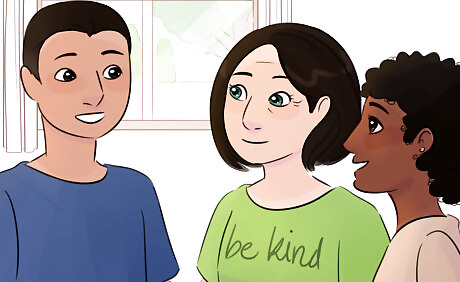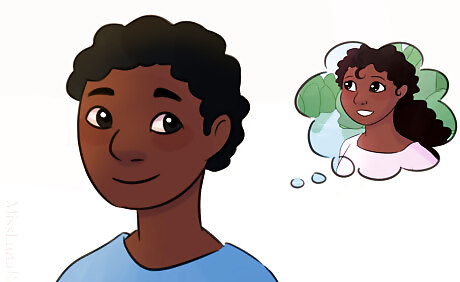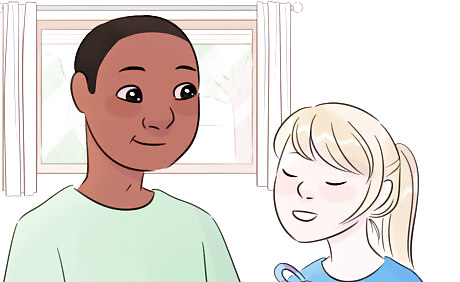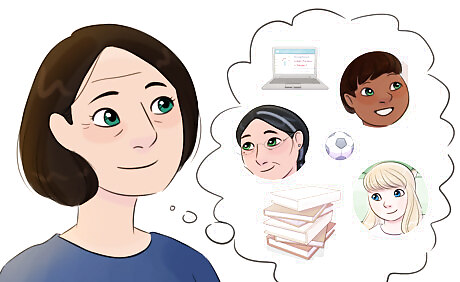
views
Understanding People

Keep in mind that people are usually driven by emotions, not logic. People do things because they feel right, believe things because they feel true, and make decisions based on emotions (even if they say their reasons are logical). You may hear people making excuses for doing or saying certain things. Sometimes, the excuse might sound very flimsy. Instead of believing the excuse, assume that the person did it because they wanted to. If you want to persuade someone, don't focus on logical reasons. Focus on making an emotional impact. If someone says they are only motivated by logic, it may just be that they don't have much self awareness, and don't understand how their emotions impact them.

Recognize that habits are hard to break. People fall into patterns, and they tend to follow those patterns (for better or for worse). Think of the laws of motion: an object in motion will tend to stay in motion, and an object at rest will tend to stay at rest, unless a force acts on them. A man who yells too much will probably continue yelling too much unless he gets a serious wake-up call about how his behavior affects other people. A woman who eats healthy will probably continue eating healthy, unless something serious in her life changes. A person who wakes up early every day will probably keep waking up early every day. A child who often forgets their homework will probably keep forgetting their homework, until someone figures out a strategy to help them keep track of it.

Recognize that people only change if they want to. People can and do change, but you can't make someone change. Instead, the person has to realize for themselves that the way they're acting isn't effective, and decide that they want to do something better. You can help lead them towards a realization, but you can't make them believe in something or commit to something. They have to do this themselves. You are not responsible for them.

Keep in mind that sometimes people need a change in their environment, not a change of who they are. Sometimes, people behave badly because their needs aren't being met. If you can identify and fill the unmet need, the person might start behaving better. If you don't like someone's behavior, see if you can figure out what they might need. A cranky parent might need a new job that doesn't cause them so much stress. A seriously disorganized teen might suddenly do more homework if a parent sits with them every afternoon to help, or if they get treatment for ADHD. A sullen child might need more praise and one-on-one time from attentive parents, and then become more upbeat and talkative. An emotionally distant girlfriend might need her boyfriend to listen to her more and validate her feelings.

Recognize that people tend to be at their best in a positive environment. People may rise (or fall) to meet your expectations. This is especially true if you're their boss, teacher, or parent. An encouraging and supportive environment often helps people be their best selves, and be on their best behavior. Asking "How can I help you?" can sometimes calm an angry or upset person. People tend to behave better when they are praised for doing well. Punishments are less effective than some positive words or a reward.

Know that people can fall back into past bad habits under stress. Personal growth isn't linear. Sometimes, people become stressed enough that they revert to old coping mechanisms, even if the behavior isn't healthy. Past issues may temporarily reappear if the person is in a situation they don't know how to handle. Tackling the stressor can often help them return to better decision-making.

Remember that people can surprise you. Predicting other people's actions is notoriously difficult. Everyone is unique, and everyone is complex. Get used to being surprised by other people, and take it in stride.
Building Skills

Practice figuring out how other people feel. Try to imagine how you might feel if you were in the same situation that they are. Then consider the ways they're different from you, to help inform how they may feel a little differently. Pay attention to people in real life, and in stories you read or watch. Books, movies, and TV for young people often focus on teaching social skills. Pay attention to any lessons in the media that could teach you something.

Work on reading body language. While different people can use body language in different ways, it can usually offer some useful clues about how they feel. This is useful for figuring out whether someone is interested in what you're saying, and whether it's a good time to approach them. Where are they facing? People tend to look at, and turn towards, what they're interested in. For instance, eye contact is an incredibly telling form of non-verbal communication. What do they look at? People usually look at what they're thinking about. For example, someone who keeps looking at the clock is probably thinking about the time and what they need to do next.}} Is their body language mostly open or closed? Relaxed, open body language is a sign that a person feels comfortable. If they're using arms, legs, or objects like a "barrier," then they're probably uncomfortable. (Though sometimes, crossed arms can mean that they're just cold.)Tip: Remember that body language can vary based on culture and disability. For example, eye contact is polite in Western culture but rude in some Eastern cultures. Also, disabilities can impact someone's natural body language. For example, you may have heard that fidgeting and lack of eye contact are signs of dishonesty, but in autistic people, that's normal behavior.

Practice keeping an open mind. Being judgmental, or jumping to conclusions, can make it easy to misunderstand a person or a situation. Try to assume the best of other people if you don't understand yet. For example, instead of thinking "my new boss must be an overbearing jerk," try telling yourself "maybe she's just talkative, and didn't realize she was interrupting me." Remember that context is important. Do not try to make assumptions based only on your reading of the other person's body language.

Work on your listening skills. You need to pay attention in order to understand someone. When you listen, focus on what the other person is saying, and not what you're going to say next. Try to understand their perspective, and ask questions. People tend to open up more if you validate their feelings and say things like "that's understandable" or "that sounds tough; I'm sorry to hear you're going through that." It can also help them feel better if they're upset.

Try to work on discovering people's intentions. What do they need? What are their goals right now? If you understand what they're trying to achieve, you can often figure out what they might do, and how you can get along with them.
Understanding a Specific Person

Notice patterns in how someone acts. Everyone is unique, and different people will have different habits and quirks. Pay attention to how they typically behave.

Figure out what they like and dislike. When someone reveals that they like or dislike a certain thing, make a mental note about it. That information could be useful later, to help you be a better friend to them. People are often pleased to discover that you remember things about them. For example, if your friend gets distracted by a display at an art supply store when the two of you are at the mall, make note of what caught her interest. She may be delighted if you buy her something similar to that for her next birthday. If your boyfriend turned quiet and looked uneasy when your friend told him details about a medical procedure, then you'll know he probably wouldn't enjoy watching a medical drama.

Notice what the person is sensitive to. Everyone is sensitive to certain things, whether they'll admit it or not. It's part of being human. By noticing what upsets someone, you can help avoid and de-escalate high-stress situations. What scares them? What puts them on edge? What is important to them? What do they want to protect?

Keep their past in mind. People's pasts can reveal their habits, and the important experiences that helped shape them. However much you know about their past, keep it in mind, because it can help you understand what they do and how they feel today. What are their favorite memories? Their favorite memories can reveal what they care about, and what they want out of life. What are the worst things that happened to the person? Whether the events were just upsetting or seriously traumatic, the person will probably try to avoid similar experiences in the future.

Keep their differences in mind. Everyone is unique, and people with different backgrounds will react differently to situations. Especially if someone is very different from you, be careful about making assumptions. Here are a few of many factors that can influence a person: Culture: Different cultures have different social norms. For example, eye contact is considered polite in most western cultures, but considered a sign of disrespect or aggression in some eastern cultures. Gender: Men are often expected to be tough, and to avoid showing emotions besides anger. Women are often expected to be passive and easy to get along with. Watch how the person navigates gender expectations. Disability: People with some disabilities (like autism and ADHD) have different body language, such as avoiding eye contact or fidgeting when listening. This is a way to meet their needs, not an attempt to be rude.

Don't be afraid to ask questions. If you aren't sure what someone thinks or how they feel, it can be worth asking politely. They may be happy to clarify for you. "I noticed you checking the time. Do you need to leave?" "I saw you wince when he raised his voice. Are loud voices something that bother you?" "I'm having a hard time reading you right now. Is something upsetting you, or am I misreading you?"



















Comments
0 comment